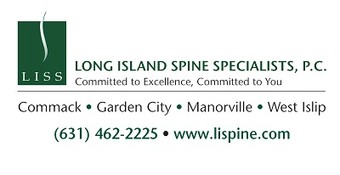|
|

|
« Back
I'm training to be a case manager for our State Workers' Compensation program. I've had years of experience treating these patients, now I'm switching hats and sitting on the other side of the table. I'll be working primarily with back pain cases. My reading so far of the research available suggests that Workers' Compensation patients don't really respond to treatment the same way as other nonWorkers' Compensation patients. Is that true? And what are the reasons for this?
|
|
The question of whether or not patients on Workers' Compensation have different results after treatment for back pain has challenged the health care profession for years now. People with work-related back problems seem to have significantly worse outcomes than those patients with similar musculoskeletal conditions who aren't on Workers' Compensation.
A recent study was done as part of an on-going research project called Spine Patient Outcomes Research Trial or SPORT. The researchers compared Workers' Compensation to non-Workers' Compensation patients with back pain. Both groups were divided further by type of treatment: conservative (nonoperative) care or surgery. The results of treatment were compared at regular intervals from six weeks to two years.
The goal of a study like this is to see what effect Workers' Compensation status has on patient outcomes. Is one treatment better than another? Do Workers' Compensation patients have equal results to non-Workers' Comp patients when the same treatment is applied? Patients with a lumbar disc herniation treated at 13 U.S. Spine Centers were included in the study.
Only adults who were not already considered disabled and could return to work (including unemployed patients but not retired folks, homemakers, or students) were included in the study. Conservative or usual care consisted of active physical therapy along with a home exercise program, education and counseling, and medication (anti-inflammatories). Surgery was an open incision discectomy (disc removal).
By factoring many variables into the statistical analysis, they could tell which ones were directly linked with results -- in other words, which patient factors affected the final outcome. That way if something was a more important factor than Workers' Compensation status, it would show up. They looked at clinical findings such as any neurologic signs (change in sensation, change in reflexes, muscle weakness). They included patient characteristics (smoker, other health problems, education level, income, age, sex, racial/ethnic background).
As it turned out, everyone in the study got better with treatment -- that was true for both groups and both types of treatment. But a closer look at all the data also revealed that Workers' Comp patients who had surgery didn't have as good of results as nonWorkers' Comp patients who had surgery. And over time, the benefit the Workers' Comp patients showed early on deteriorated.
It's not entirely clear why Workers' Comp patients had worse outcomes after surgery. Despite analysis of the other factors, nothing stood out as a significant factor except Workers' Comp status -- and that was true for patients at all 13 treatment centers. It's possible that the Workers' Comp patients go into treatment with different expectations, ideas, and perceptions than nonWorkers' Comp patients. Some Workers' Comp patients may feel pushed to have surgery rather than wait for natural healing to occur in order to get back to work sooner. More study will be needed to investigate some of these ideas.
|
References:
|
|
|
« Back
|
|
|
|
*Disclaimer:*The information contained herein is compiled from a variety of sources. It may not be complete or timely. It does not cover all diseases, physical conditions, ailments or treatments. The information should NOT be used in place of visit with your healthcare provider, nor should you disregard the advice of your health care provider because of any information you read in this topic. |
 | All content provided by eORTHOPOD® is a registered trademark of Mosaic Medical Group, L.L.C.. Content is the sole property of Mosaic Medical Group, LLC and used herein by permission. |
|
